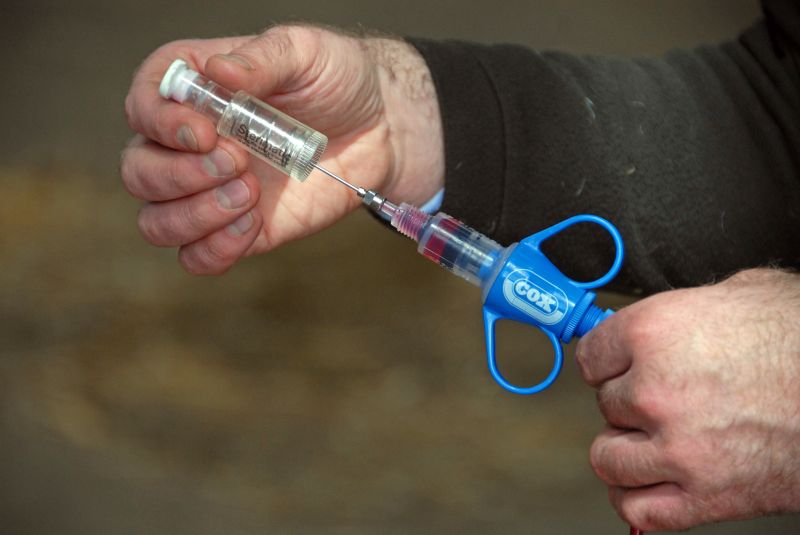
Scientists have developed two skin tests that can distinguish between cattle infected with bovine TB and those that have been vaccinated against the disease.
Combatting bovine TB is a national priority, manifested by the £100 million spent annually on disease surveillance, monitoring and non-genetic control.
But new tests have paved the way for a possible breakthrough in the worldwide fight against the infectious bacterial disease.
Developed by an international group of scientists which included researchers from the UK, they were developed as a consequence of elucidating the genetic composition of the bacteria that causes the disease.
Scientists looked at a considerable number of studies on how cattle respond to infection and vaccination.
A traditional skin test shows a positive result for cows that have the disease as well as those that have been vaccinated against it.
Developed in the early 1900s from the bacterium that causes TB in cattle, the vaccine has remained largely unused to vaccinate cattle.
It is prohibited throughout the European Union, as well as in the United States and many other countries.
But by distinguishing between vaccinated and infected cattle, the new tests will facilitate the implementation of vaccination programs globally that could considerably reduce the transmission of bTB from cattle to humans.
The new test will now have to be evaluated in field trials to a level recommended by the World Organisation for Animal Health (OIE).
Further, regulatory issues including demonstrating their safety will also have to be addressed.
Such studies are already under way in the UK and in India.
'Significant improvements in the control of bovine TB'
Professor Glyn Hewinson, one researcher behind the development, leads the newly-established Centre of Excellence for Bovine TB at Aberystwyth University.
He said scientists have been working for over 20 years on developing vaccines and diagnostic tests for bovine tuberculosis.
“It would wonderful if either of these tests succeeds in bringing about significant improvements in the control of bovine TB globally.
“Such a development would represent the culmination of a great deal of work by dedicated and talented scientists from around the world, and a significant step forward in our efforts to control this disease,” he said.
Professor Martin Vordermeier of Aberystwyth University added: “Development of these tests is a crucial step on the long and challenging journey to implement cattle TB vaccine programmes to reduce the burden of this intractable disease.
“Without such tests, traditional test and slaughter control strategies could not be pursued alongside vaccination.
“Nor could vaccine efficacy and disease prevalence be effectively monitored in vaccinated animals in countries where such control strategies are unaffordable or societally not acceptable.”
The skin tests were created by an international team of scientists from Ethiopia, India, the Netherlands, the UK and USA.
